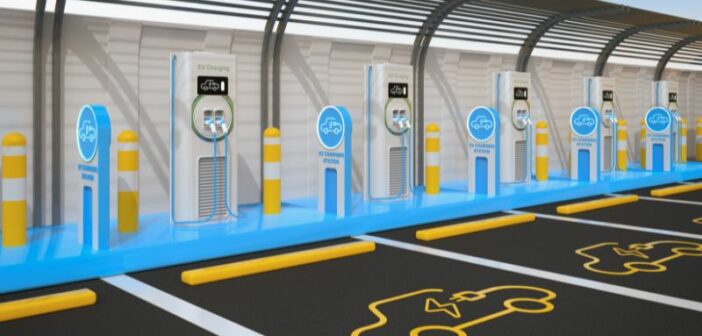In the global race towards net zero emissions and overall sustainability, electrical vehicles (EVs) play a critical role. The rise in EV interest and use in the past decade has been encouraging. EV sales had a record-breaking year in 2023, with the United States alone seeing 1.6 million in EV sales. All signs point to people wanting to adopt more sustainable transportation practices. However, for this shift to move the needle toward global sustainability, the EV charging infrastructure will need to be robust enough to support expanded EV use.
The current EV charging infrastructure
To support the over 2 million EVs on US roads today, over 175,000 EV charging stations have been built and installed. This number is on par with the number of gas stations in the US. However, research has revealed acute issues with the current EV charging infrastructure.
A recent study from JD Power showed that EV drivers reported that upwards of 20% of EV charging stations were inoperable at any time. The unreliable nature of the EV charging infrastructure has led to what is being deemed “charging anxiety” on the part of EV drivers. Where once drivers were concerned about the range of their fully-charged EVs, now they are experiencing anxiety about their ability to charge their vehicles once they reach a charging station.
As there has been a greater push to embrace EVs, the problems with the EV charging station infrastructure have become more crucial to examine. Recently, the US Department of Transportation’s Federal Highway Administration’s National Electric Vehicle Infrastructure (NEVI) program has pledged to increase uptime to 97%, a lofty goal in the face of obvious issues. This goal has come at the same time as the Biden Administration’s Infrastructure Plan, which includes funds for expanded EV charging stations.
It has become apparent that for the EV Revolution to thrive, the charging infrastructure must be better supported.
Support for charging, support for EV growth
To buoy the current charging infrastructure and lay a strong foundation for future charging stations, the focus must not only be on building more stations but also on having a workforce that is trained and ready to support them.
Currently, traditional electricians and IT support technicians are being relied upon to support and maintain this new infrastructure. However, as with all new technologies and industries, a new workforce of specifically trained technicians will be required if the goals of NEVI, state and federal governments, and the EV industry itself are to be met. EV charging stations are complex networks. While traditional electricians may have the know-how to address electrical interruptions or issues with the infrastructure, they may not have the EV-specific knowledge to keep the network operational. Likewise, while IT workers may have the computer hardware or networking knowledge useful for supporting the technology that EV charging stations are built around, they may not have the specific skills to support electrical equipment.
A new component in the EV Revolution is specifically trained, certified electric vehicle service equipment (EVSE) technicians. This latest addition to the workforce is poised to make a significant difference in the nation’s race to bolster its EV charging infrastructure — and thereby support greater EV use. A well-supported charging infrastructure, maintained by specially trained professionals, will lead to greater uptime, a reduction in “charging anxiety,” and greater overall adoption of EVs.
The expanded workforce
With an expanded EV charging infrastructure comes more jobs, which is another way the EV Revolution appeals to so many in the United States. From those tasked with installing the new charging systems to those trained to maintain them, studies show that between 2021 and 2023, there has been a 21% increase in employment demand for EV and EV-adjacent jobs. Thousands of professionals will be needed in the coming years if the country is to meet the growing demand for EV use. These professionals will serve as frontline supporters of the EV Revolution, keeping it moving forward and allowing for more innovative expansion of the EV industry in the near future.
It is clear that the success of the EV Revolution greatly hinges on the support of the EV charging infrastructure. The automotive industry is on the fast track toward electrification, the benefits of which are already being felt. A single EV produces 60-68% fewer greenhouse gasses than a fuel-based vehicle over its lifetime. The more EVs on the road, the better our chances become to fight climate change. As global demand for EVs continues on an upward trajectory, a strong focus on training specialized technicians to support the planned expanded charging infrastructure will be critical. A well-planned and supported EV charging infrastructure not only supports EV use but also strengthens the economy through job creation. By prioritizing the health and expansion of the EV charging network, we can improve our defenses against climate change and pave the way for a healthier and more sustainable future for everyone on the planet.
Learn more about SkillFusion’s EV Charging Infrastructure at the website here.
Related News:
2024 US OEM EV App Report Released by JD Power
MaxiCharger Megawatt Charging System Released by Autel Energy

